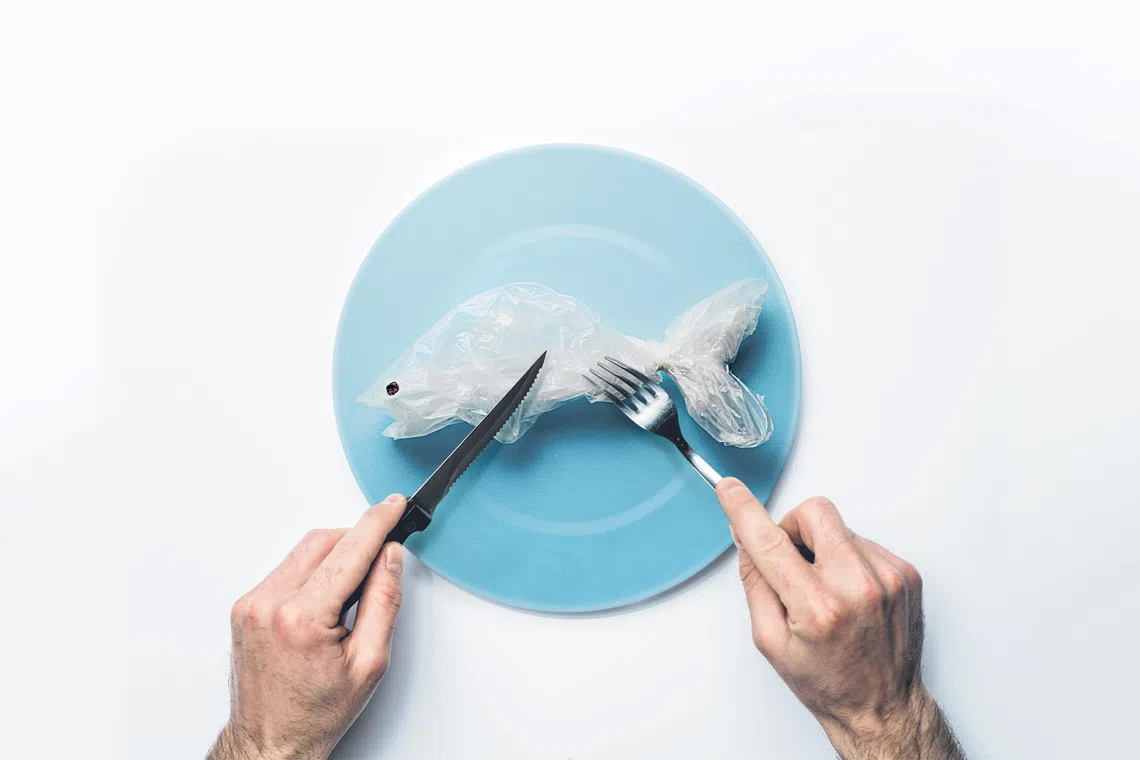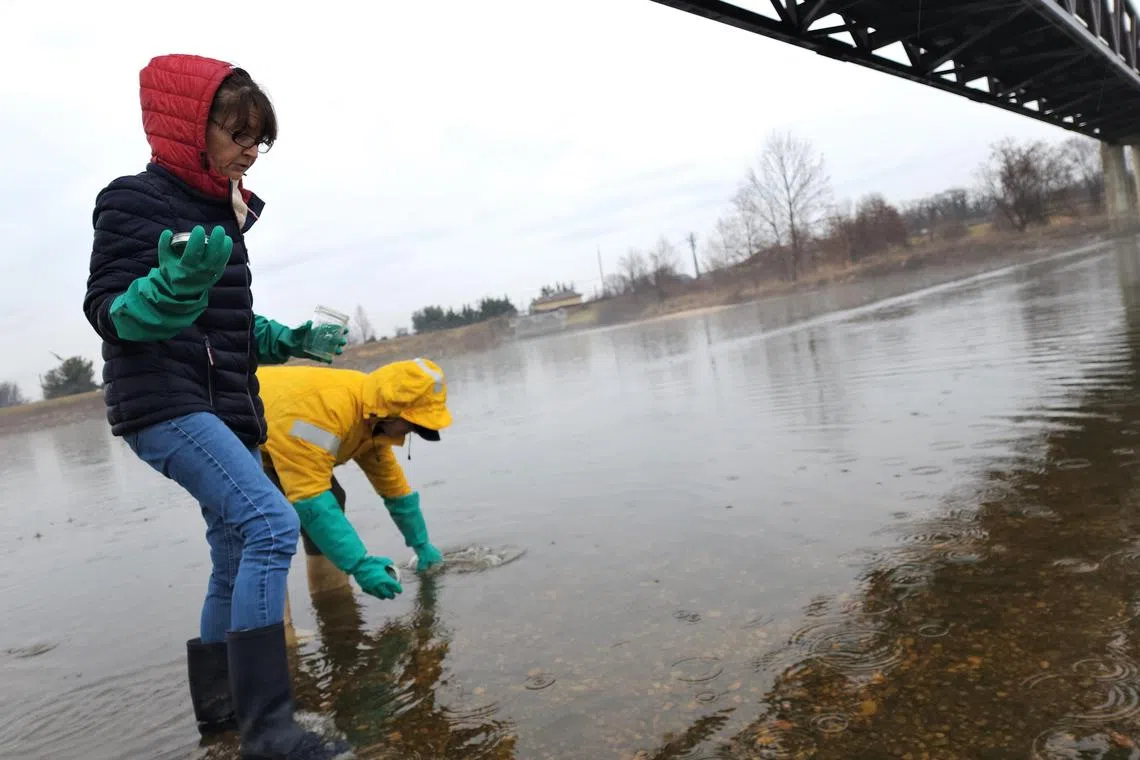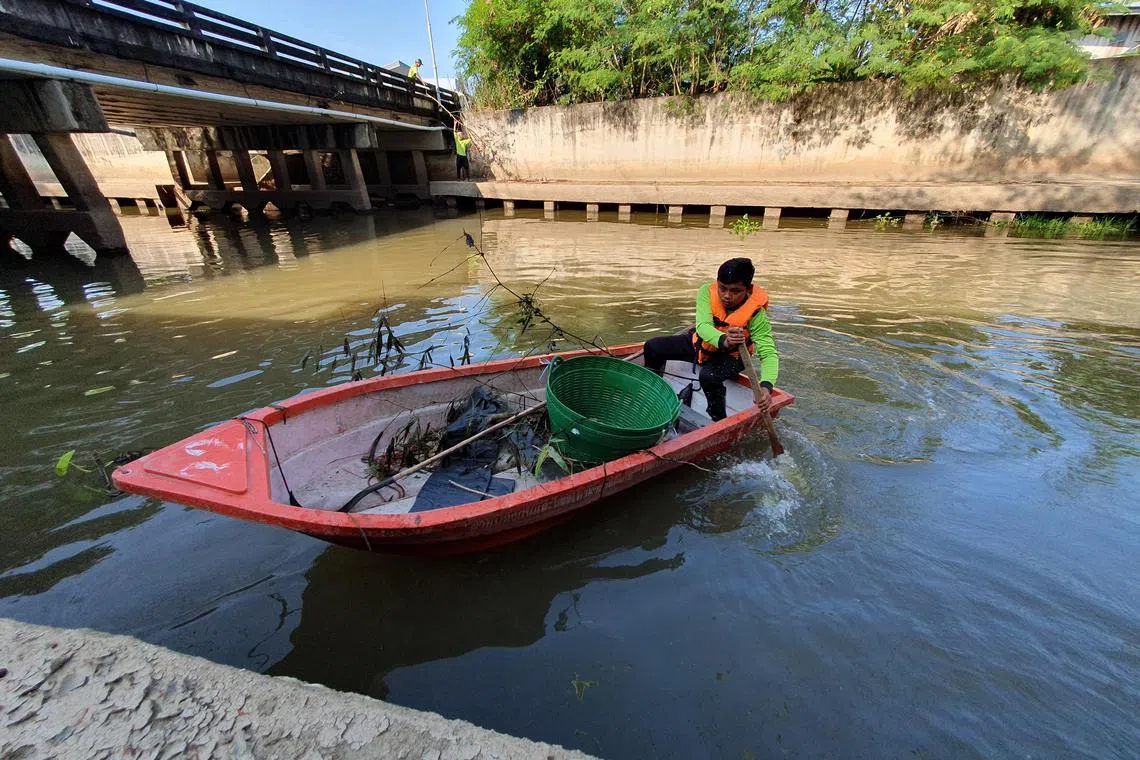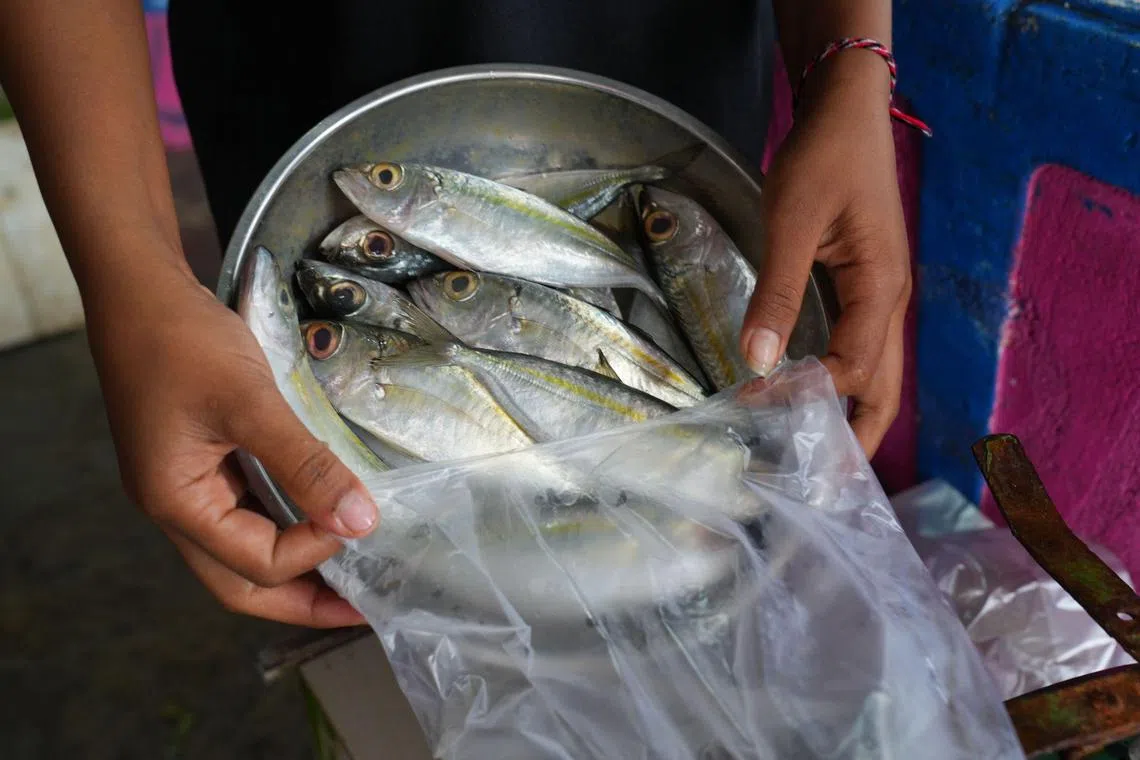Microplastics on your plate: What is being done to reduce plastic waste?
Sign up now: Get ST's newsletters delivered to your inbox

From the US to Europe to Asia, microplastics are polluting the soil, rivers and seas, entering the food chain and finding their way into the human body. What is being done to reduce plastic waste and the harm it can do to nature, including humans?
Hope in the time of microplastics

The Straits Times
Forlorn in the grey distance on a cold wet day, a freight train hoots as professors Jesse Meiller and Barbara Balestra wade shin-deep into the slow-moving, shallow brown Anacostia river.
The place is Bladensburg, an urban area in Maryland just west of Washington DC. For the past 2½ years, the two scientists have visited it once every quarter as the season shifts.
In their knee-length rubber boots and wearing elbow-length rubber gloves, hunched under their rain hoodies in the dark shadow of an old iron pedestrian bridge, they take water and sediment samples to check later in their labs for microplastics.
There is no shortage. They find microplastics at almost all their sampling sites in the Anacostia watershed regardless of season and location, says Prof Meiller, a marine ecologist and environmental toxicologist who teaches at Georgetown University.
Thai city removes bins to fight plastic waste

The Straits Times
In the southern Thai city of Nakhon Si Thammarat, trash bins used to “walk”.
The municipal authority left waist-high bins on the street for households to deposit their bagged trash. But residents, trying to rid themselves of this eyesore, would push the wheelie bins away from their homes – to the front of their neighbours’ homes – sparking furious rows.
Bounced from place to place, the bins would eventually end up in front of vacant lots, attracting vermin as well as passers-by who dumped loose bits of litter.
How to reduce the risks of eating fish in Indonesia

Bloomberg
Ms Susi Pudjiastuti, Minister of Maritime Affairs and Fisheries of Indonesia (2014-2019), once made a popular joke about Indonesians who didn’t eat fish: “I will go after you who don’t eat fish, you will be sunk like those vessels.” The vessels she referred to were foreign fishing trawlers. The word “sink” became a popular meme on social media and underscored how important fish is to Indonesians.
Fish is a crucial source of protein for Indonesians. Indonesia is the second-largest fisheries producer after China and the industry plays a huge role in the country’s economy. The sector is only expected to grow, especially in aquaculture, with traditional catches decreasing due to overfishing. Coupled with a global consumption trend that is starting to switch from red meat to fish, fishery products are becoming easier to obtain and more affordable.
But there is a risk. Eating fish while they are also eating plastic can be dangerous.


